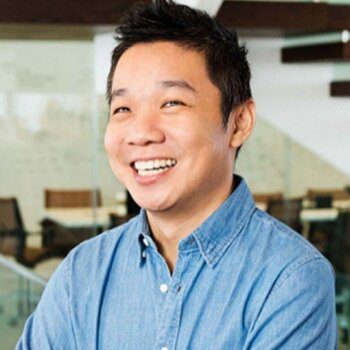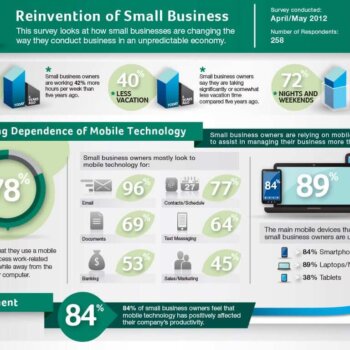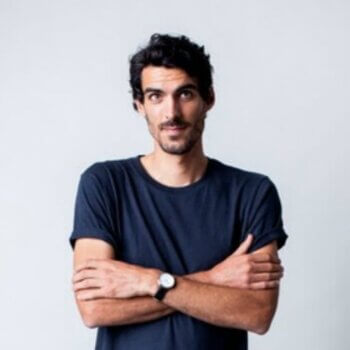Feeling unmotivated in her career, Claire Martin took a 3 month intensive web development course and now provides software solutions for individuals from different industries.
What’s your story?
Originally born and raised in Greater London, I moved to Asia for work 4 years ago. My journey was spearheaded by my motivation to want to fully utilise my language skills and start a business. China’s economy was booming and Asia seemed to have more opportunities available than the West. I was driven partly by my personal motives and partly by my spirit for adventure. I arrived with high ambitions and little direction. I thought at the time it would be advantageous and beneficial to leverage my understanding of Asian culture and fluency in Mandarin and Cantonese. Until now, it hasn’t been the smoothest of journeys; having started businesses and not succeeding, but I quickly learnt how to adapt to the environment and continuously put in the effort to succeed.
I started my career in Business Development & Sales feeling unmotivated and not fulfilling my passion to learn, I moved into tech. I wanted to equip myself with skills which would give me a good foundation for the ever-evolving digital world we live in. I quit my job and underwent a 3-month intensive web development immersive course where I learnt full-stack web development. Since then, I have been a software engineer, project manager and digital product manager. Moving into the tech industry has opened many doors for me and I’m glad I made the investment in myself to gain web development and strong tech competency skills. I now have a growing business where I build software solutions for individuals from different industries catering to various different requirements.
What excites you most about your industry?
It’s exciting the tech industry is always evolving and changing. This means I have to keep learning to stay ahead! Technology has advanced the way we communicate; between individuals, B2B, B2C … a large part of what I do is around the communication aspect and how users themselves interact with technology. Technology can solve an abundance of problems where there are limited resources – its all about crafting the best solution to the problem.
What’s your connection to Asia?
My mother was born and raised in Hong Kong, so I have a connection to Asia by blood. My mother moved in her 20’s to the United Kingdom and met my father who is Scottish. At 19, I saw the importance of learning Mandarin, and I took it upon myself to move to Beijing to learn Mandarin and explore my Asian roots. I have lived in the UK, China, Taiwan & Hong Kong each environment different from the next. Each place has challenged me in different ways and given me valuable knowledge and experiences, and I’m blessed to have met some amazing people along the way.

Favourite city in Asia for business and why?
Having extensively travelled around Asia, I would have to say Hong Kong, it’s so easy to meet and make connections here, and you’ll find your network builds so rapidly in a short space of time. Having the language skills does help but not speaking Cantonese has never limited anyone by any means.
What’s the best piece of advice you ever received?
We are accountable to ourselves; our successes and failures are a result of what we do. And as long as we are learning from our errors we are always excelling.
Who inspires you?
I take inspiration from everyone I meet, everyone has valuable lessons and it’s good to hear their experiences. I am inspired by Great entrepreneurs like Oprah, Richard Brandson Gary Vee who came from nothing and worked their ass off to get to where they are now. Good work ethic is something my parents taught me – you put the work in and you will see the results.
What have you just learnt recently that blew you away?
Fridays are weekends in Dubai! On a more serious note, understanding some of the algorithms that neobanks have implemented to check currency daily against Morningstar and Google rates to offer the most competitive value.
If you had your time again, what would you do differently?
I would have started earlier in learning the skills I have obtained now. I would tell a younger me to not worry as much and take more action to do more and take bigger risks in terms of starting a business at a younger age. Sometimes we overcomplicate things for ourselves which ultimately leads to inaction! Start small, keep trying and you will evolve with the process.
How do you unwind?
I love to surround myself in nature – ocean or trees – away from everyone… it helps me to think and take myself out of the fast-paced environment I’m immersed in daily. When I can’t get out, I love to read in the evenings with my lavender diffuser whirling around me. And playing my guitar or piano is a great way for me to de-stress.
Favourite Asian destination for relaxation? Why?
Thailand, it’s such an easy getaway with great food, great massages. Don’t stick to the major cities go out to find secret hidden gems surrounded by nature.
Everyone in business should read this book:
The 7 Habits of Highly Effective People/ Shoe Dog
Shameless plug for your business:
If you are in Asia or the United Kingdom looking for seamless straightforward digital services, check out ZiplineDesign.co.uk. Websites, apps, social media, consultancy, design work… get in touch and let me see the best way we can help to solve your problems.

How can people connect with you?
Get in touch to connect [email protected].
Twitter handle?
@ClaireM12019501
Ig handle : ziplinedesign
—
This interview is part of the ‘Callum Connect’ series of more than 500 interviews

Callum Laing is an entrepreneur and investor based in Singapore. He has previously started, built and sold half a dozen businesses and is now a Partner at Unity-Group Private Equity and Co-Founder of The Marketing Group PLC. He is the author two best selling books ‘Progressive Partnerships’ and ‘Agglomerate’.
Connect with Callum here:
twitter.com/laingcallum
linkedin.com/in/callumlaing
Download free copies of his books here: www.callumlaing.com





























